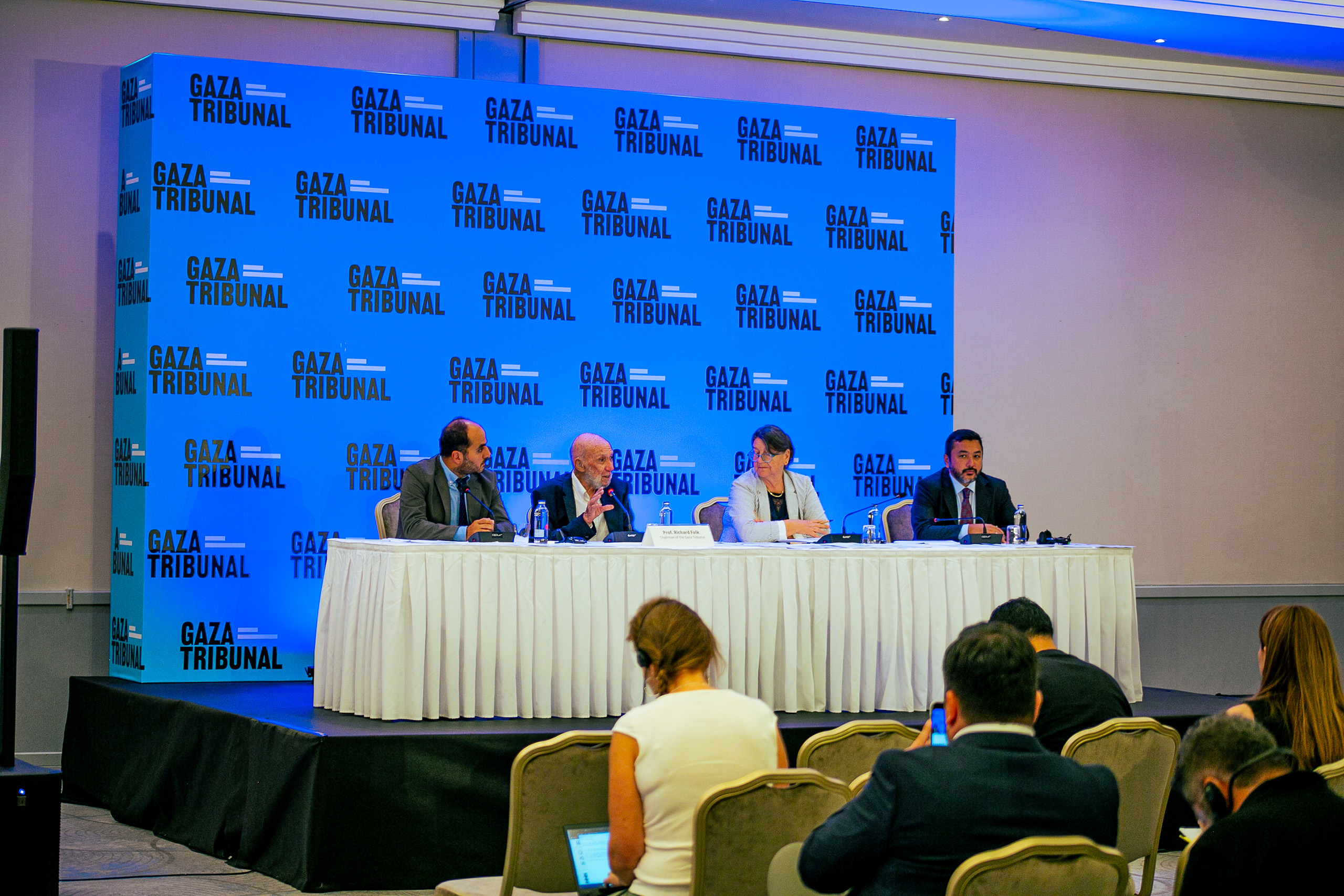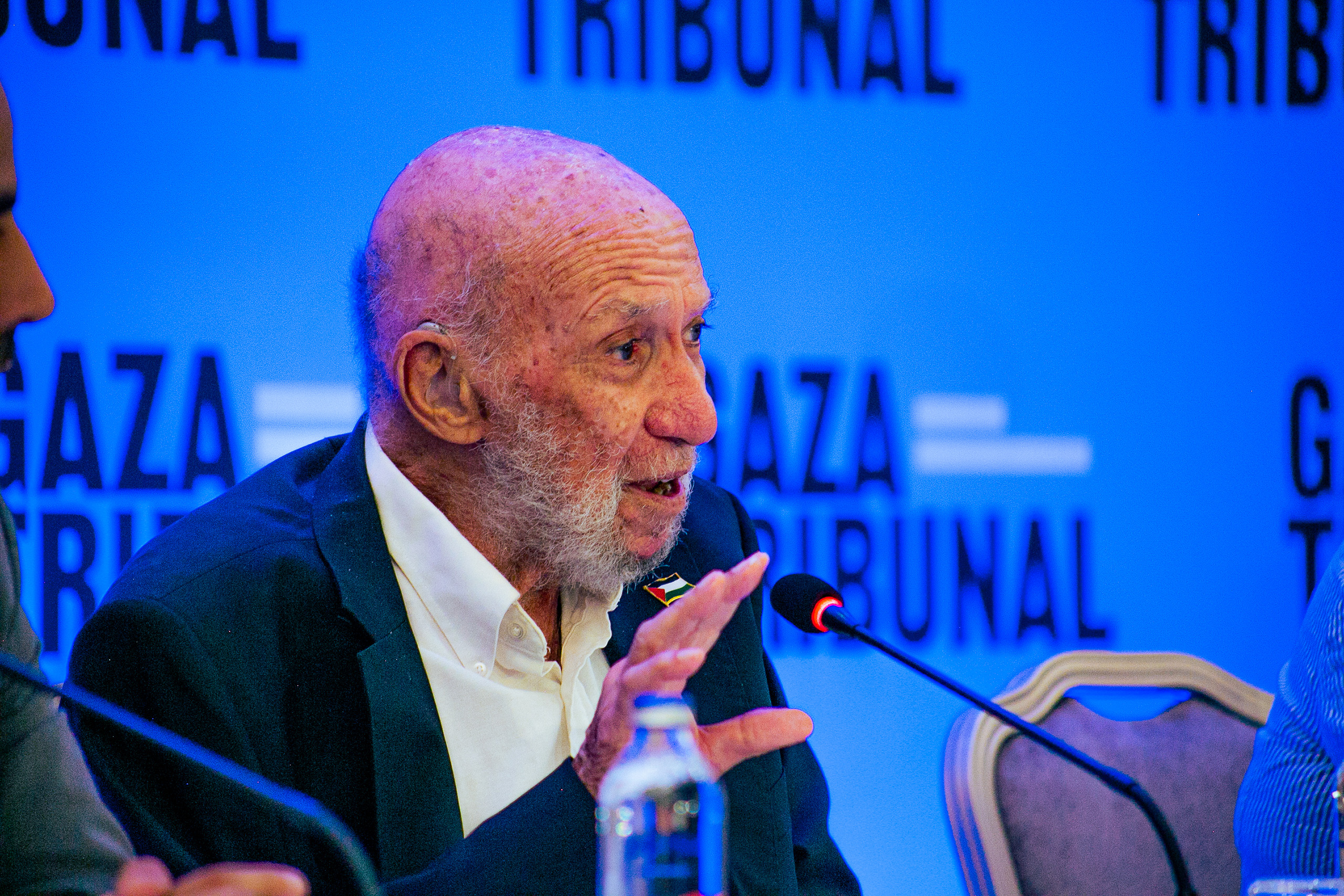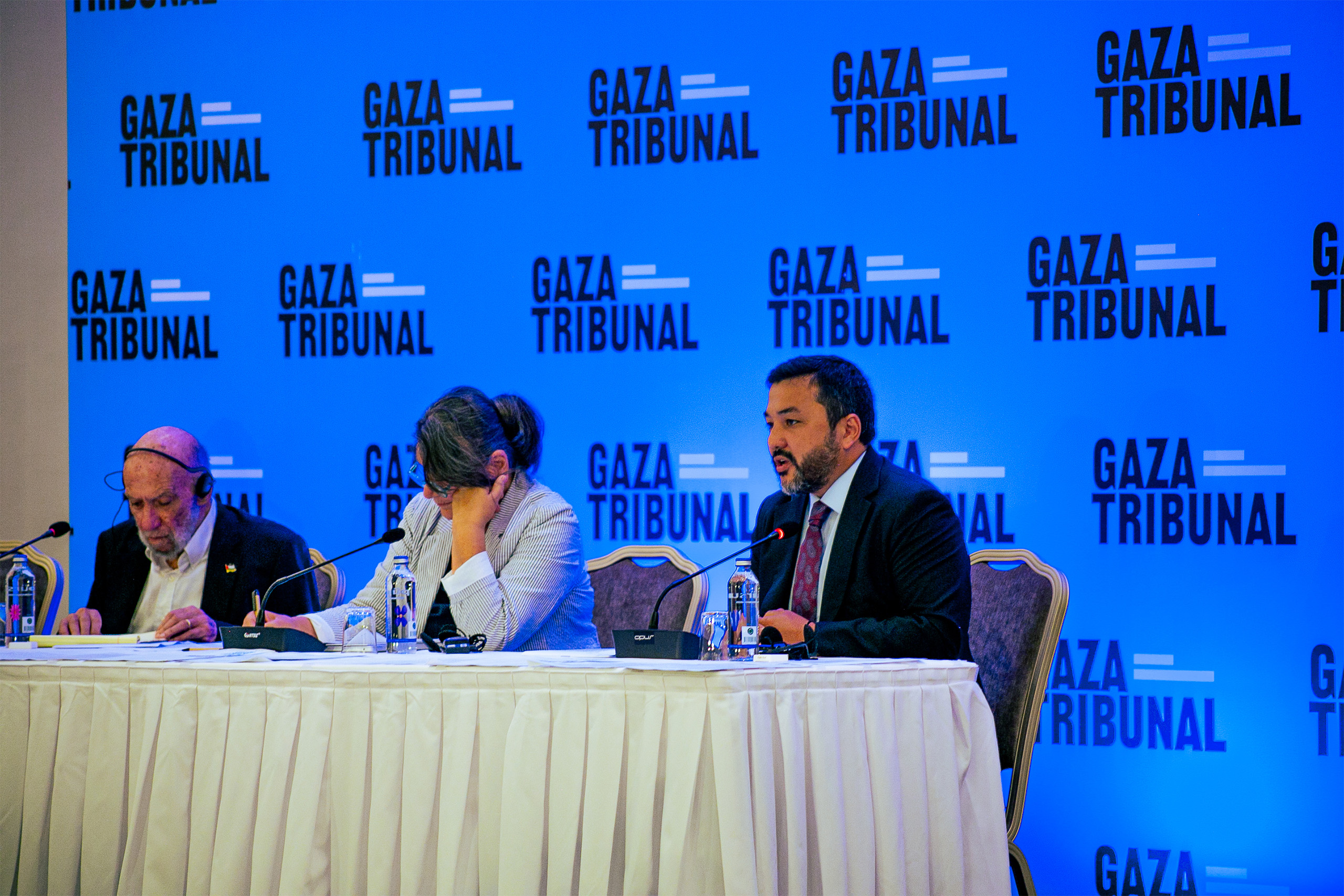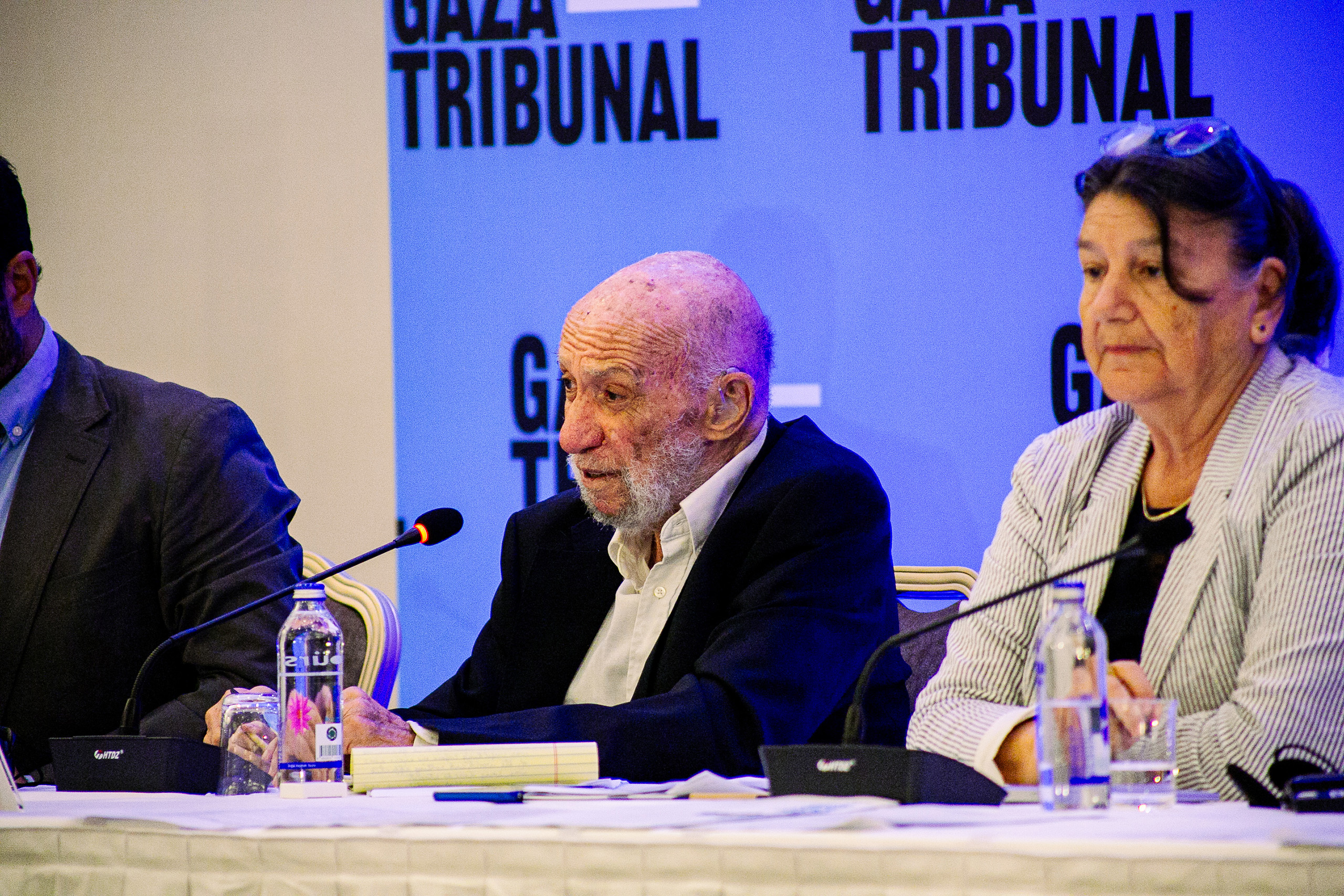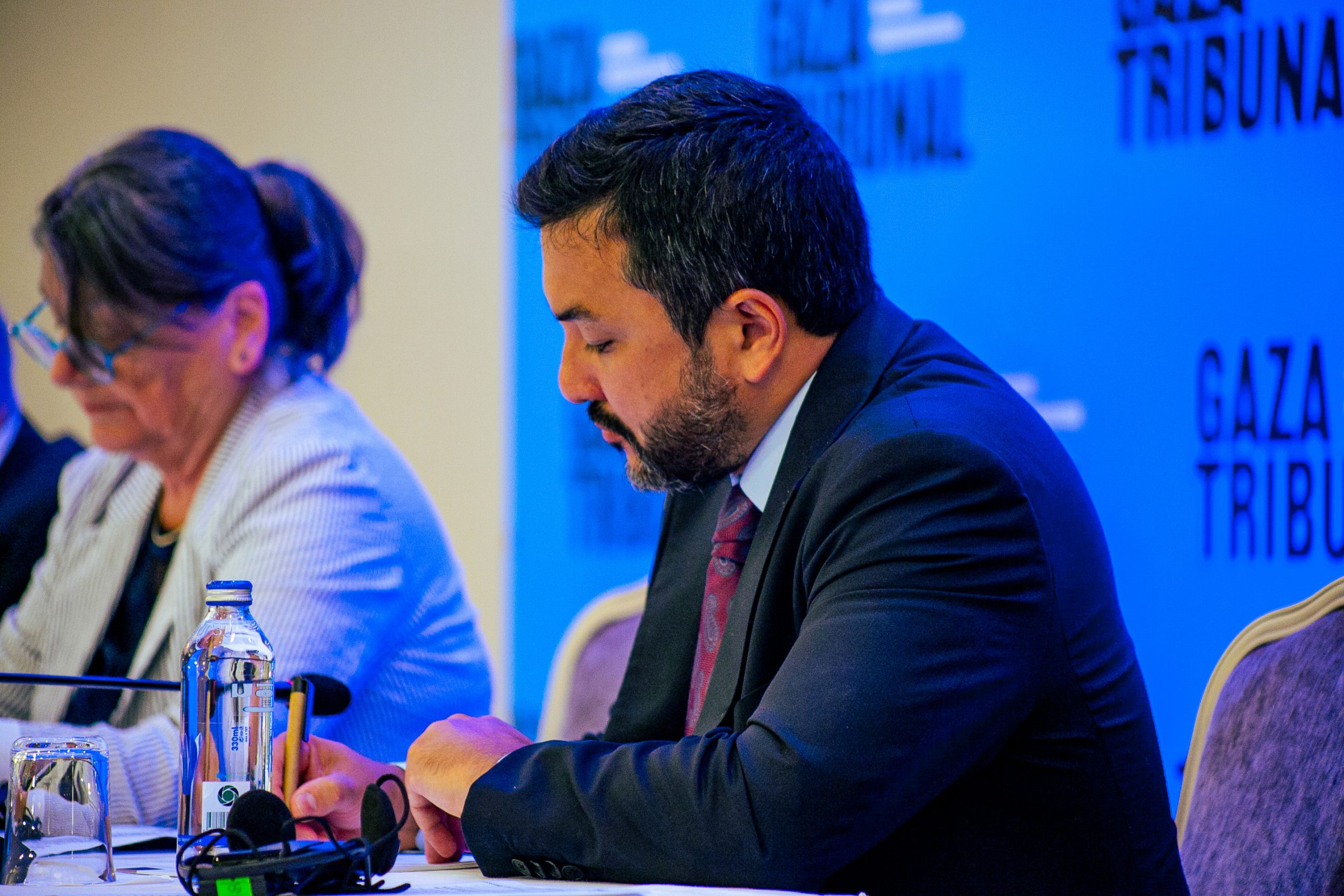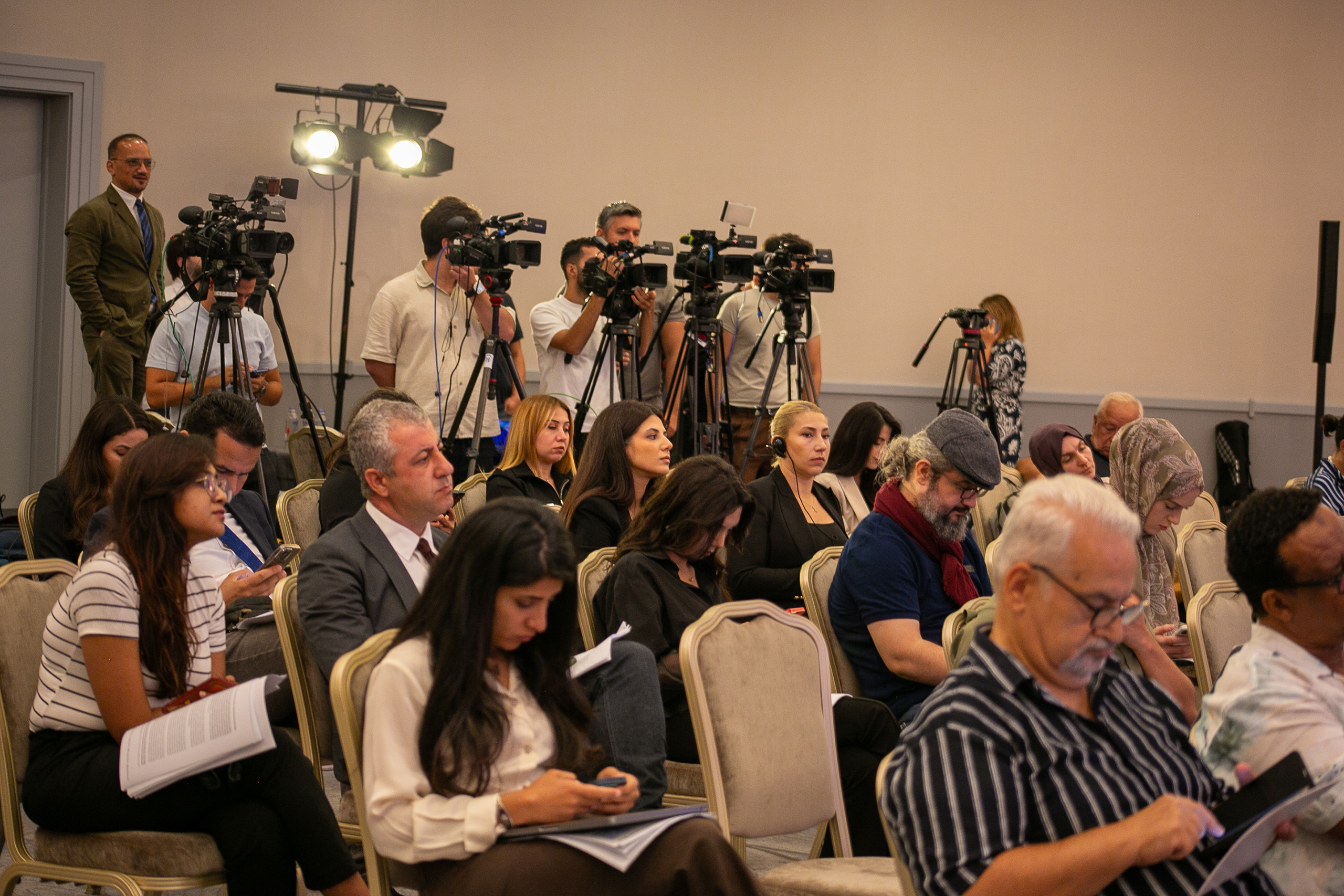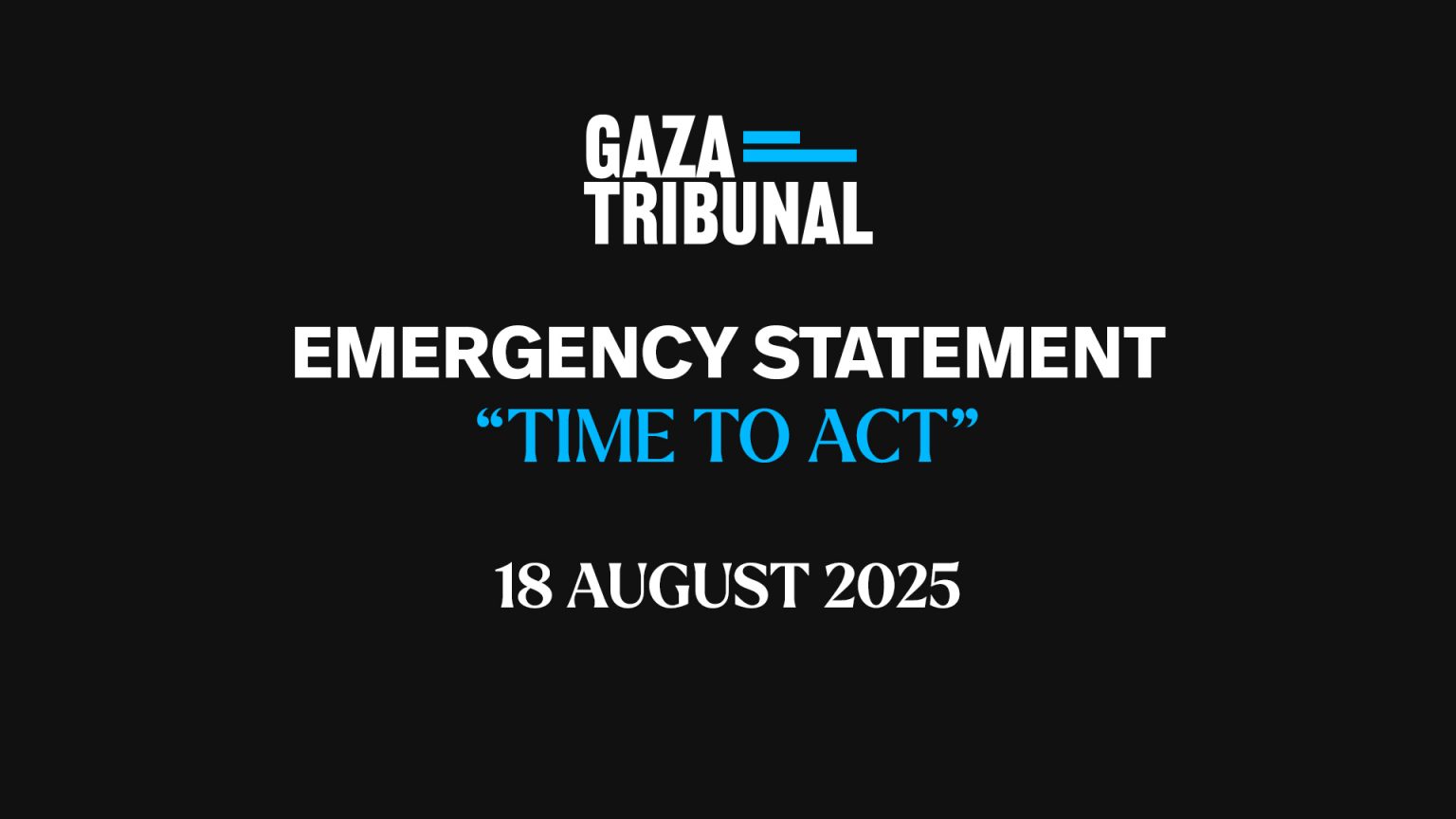On August 7 the National Security Cabinet of the Netanyahu government approved a decision, opposed by Israel’s own military command, to engage in a further Israel’s most lethal phase of genocide, the conquest of those portions of Gaza City where close to 1,000,000 starving Palestinians are huddled in fear and foreboding. Additionally, Israel’s PM went beyond the decision by announcing extension of the escalation to include Central Gaza. The imminent escalation deeply challenges Member Governments of the UN as well as the United Nations as an organization and other multilateral institutions to take Drastic Action Now. The veteran representative of the Palestinian Authority at the UN, Riyad Mansour, accurately expressed the present emergency when he pleaded to the UN, “…send an immediate international protection force to save Palestinians from certain death.”
We, as the Gaza Tribunal, join with those who treat silence in the face of genocide as complicity. Words of condemnation and nonviolent protest activity of Israel’s genocide in Gaza have gone unheeded for more than 22 months. The Genocide Convention is entitled “The Prevention and Punishment of the International Crime of Genocide.” Israel and complicit governments have defied rulings of the International Court of Justice. Authoritative reports of the UN Special Rapporteur for Occupied Palestine have exposed and documented the Israeli genocide, resulting in sanctioning the author of these truth-telling reports by this unpaid UN appointee.
The targeted assassinations of five Al Jazeera journalists, correspondents Anas al-Sharif and Mohammed Qreiqeh, cameramen Ibrahim Zaher, and Moamen Aliwa, and their assistant Mohamad Aliwa together this week, brings the number of Palestinian journalists repeatedly threatened, and falsely accused of being Hamas members, to the astonishing number of 238 journalists silenced for bringing the realities of genocide to the eyes and ears of the world. Along the same lines, some Western liberal democracies under pressure have retreated from overt complicity with Israel, even belatedly recognizing Palestinian statehood, while at the same time increasing punitive responses to pro-Palestinian protest activism and nonviolent sovereignty initiatives within their own borders.
In the face of criminal efforts to impose silence Gazans have experienced a worsening of the humanitarian crisis afflicting the entire Palestinian population of the Gaza Strip, plunging increasing numbers of innocent civilians to death by starvation, malnutrition, and diseases, as well as preventing the delivery of food and medicines by dedicated international aid agencies.1 This lifeline has been replaced shockingly by the Gaza Humanitarian Foundation that has turned the inadequately situated four food distribution sites into killing fields that enable Israeli military forces to engage in cruel and vindictive lethal acts against helpless, starving Palestinian civilians.
The world has waited far too long before taking action to end the genocide, and if it fails now, it will have waited too long. This may be the last opportunity to avoid the catastrophic culmination of the Gaza genocide. The ultimate question is urgently posed: WHAT MUST BE DONE NOW IN THE NAME OF GENOCIDE PREVENTION? From experience we know that NECESSARY ACTION will depend on mobilizing the political will to do everything possible to stop the genocide once and for all, and work toward a durable peace that does not reward Israel and does address legitimate Palestinian grievances. We suggest nothing less than immediate authorization of armed intervention in Gaza to stop the genocide and providing the capabilities to ensure success.
It is in this light, that we urge governments around the world to take immediate steps to empower the veto-free UN General Assembly that represents nearly all the nations in the world, yet so far has been frustrated in its attempts to end the Gaza genocide, war crimes, and crimes against humanity. The severity of Israeli criminality is being judicially evaluated in ongoing legal proceedings at the International Criminal Court and the International Court of Justice. The crime of weaponizing starvation and the plausibility of genocidal acts will be assessed in these ongoing legal proceedings. We cannot wait. We must seek an urgent intervention now.
In view of the gravity and magnitude of the dire situation in Gaza we urge the General Assembly to authorize on an emergency basis the immediate formation of an armed intervention suitably equipped and funded to ensure the end to the Israeli genocide. This international protective force should remain deployed until Israeli forces are fully and permanently withdrawn from Gaza and internationally administered aid can be reliably delivered without Israeli interference. At that point internationally monitored free elections should be organized in the Gaza Strip in a manner respectful of the sovereign rights of the Palestinian people to select their future political leadership.2 Only such drastic action has any hope of resolving what has become identified as the greatest moral crisis of our time. The failure to act now will be long remembered as an historic failure of humanity.
The Gaza Tribunal is dedicated to compiling a trustworthy archive that documents Israel’s criminality and that of complicit actors. It also plans a final session in late October to mobilize civil society activism around the world to exert pressure on national governments to stop all activities that are directly or indirectly helpful to the perpetrators of the Gaza genocide and to take energetic steps to promote solidarity initiatives of the kind that were so effective in the anti-apartheid campaigns of the 1970s and 1980s. We recognize that amid this deepening emergency, such an undertaking, while entirely justified in South Africa, is not sufficiently responsive to the horrifying scale of the emergency challenges that exist in Gaza at this moment. The South African resistance, despite the cruelties of the apartheid regime, never had to cope with the desperation that currently grips Gaza, imperiling the entire surviving Palestinian population in webs of famine and disease.
To act responsively, we urge the immediate selection of one of two possible paths to implement this central decision to rescue the Gazan population from the final stages of genocide by an armed international rescue operation. Both paths possess legitimacy based on past UN General Assembly resolutions, but neither has been previously relied upon to address an ongoing emergency of Gaza’s severity and magnitude. The two paths each has the potential to end the genocide if a unified political will to do so is present among the Membership of the United Nations:
–Uniting for Peace Resolution (Res. 377(V) available to the General Assembly if the Security Council fails to act in the face of an international threat to peace and security.
–Responsibility to Protect unanimously adopted at the 2005 UN Summit and specifically directed at obligating effective action by the UN in response to genocide and other serious international crimes.
In distributing this statement to UN Member governments and their diplomatic representatives the following steps could be taken in conjunction with and in support of the primary reliance being advocated here to organize armed intervention:
–suspension of all arms and munitions shipments to Israel;
–suspension of all diplomatic relations with Israel;
–suspension of trade and investments with Israel;
–boycotts of Israeli participation in cultural, entertainment, and sporting activities;
–suspension of Israeli rights of participation in selected UN activities;
–formation of a humanitarian protective force capable of being activated by Security Council Decision or General Assembly initative, with Secretary General given the authority and responsibility to convene an emergency meeting of the political organs of the UN.
Additional State and Multilateral Obligations
–to withdraw any formal recognition of Israel’s legal presence in the Occupied Palestinian Territories in accord with the International Court of Justice Advisory Opinion of July 19, 2024;
–take all steps within its capabilities to oppose Israeli genocide in Gaza as decreed in the ICJ rulings of January 26, 2024 in response to South Africa’s submission;
–support the formation of ‘a freedom armada’ to break the food siege of Gaza that is currently responsible for mass starvation, malnutrition, and conditions of famine;
–revive the Uniting for Peace Resolution and Responsibility to Protect as mandatory frameworks for observing and preventing the continuation of the Israeli genocide in all of its dimensions.
——————————————————-
1 – UN General Assembly resolutions A/RES/ES-10/22, A/RES/ES-10/23, A/RES/79/88, A/RES/79/141 and A/RES/ES-10/27 urge the immediate and sufficient flow of humanitarian assistance to Gaza.
2 – In an advisory opinion issued on 19 July 2024, the International Court of Justice emphasised that Israel is an occupying power in Gaza. In addition, UN General Assembly resolutions A/RES/78/78, A/RES/78/192 A/RES/78/170, A/RES/79/163 and A/RES/79/229 reaffirm the Palestinian right to self-determination and the right to control and sovereignty over the occupied territories.
3 – The Responsibility to Protect – known as R2P – is an international norm that seeks to ensure that the international community never again fails to halt the mass atrocity crimes of genocide, war crimes, ethnic cleansing and crimes against humanity. The concept emerged in response to the failure of the international community to adequately respond to mass atrocities committed in Rwanda and the former Yugoslavia during the 1990s. The International Committee on Intervention and State Sovereignty developed the concept of R2P during 2001. The Responsibility to Protect was unanimously adopted in 2005 at the UN World Summit, the largest gathering of Heads of State and Government in history. It is articulated in paragraphs 138 and 139 of the Summit Outcome Document, which is attached as an annex to the GPT Statement.
